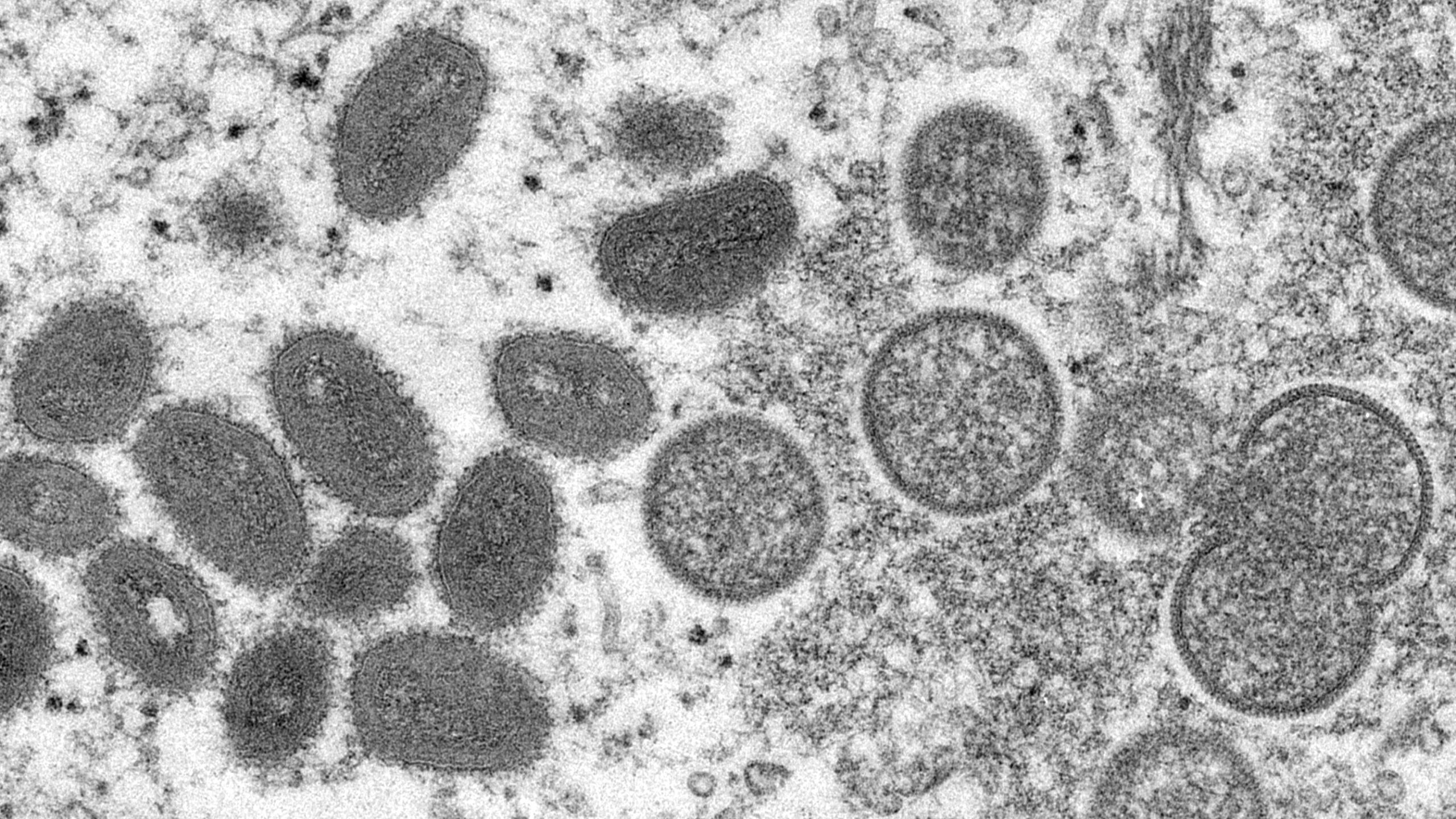Vaccine access still limited in Minnesota as monkeypox cases rise nationwide
[anvplayer video=”5123880″ station=”998122″]
Monkeypox has now spread to nearly every state in the country. On Wednesday, the North Dakota Department of Health identified its first case involving a person who traveled out of state.
New York has the highest number of cases at 900, while California follows at 356 cases.
Minnesota ranks among the middle of the 44 states reporting cases. Over the last month, the number of people sick with monkeypox has risen from one case to 19 cases statewide.
“We’ve seen over the last couple of weeks the rising cases,” said Dr. Beth Thielen, an infectious diseases physician for M Health Fairview. She is also an assistant professor of pediatrics at the University of Minnesota Medical School. “I think right now we’re in a phase of catching up on diagnosing some of the cases that may have been out there.”
RELATED: Two children diagnosed with monkeypox in U.S., officials say

FILE - This 2003 electron microscope image made available by the Centers for Disease Control and Prevention shows mature, oval-shaped monkeypox virions, left, and spherical immature virions, right, obtained from a sample of human skin associated with the 2003 prairie dog outbreak. U.S. health officials are expanding the group of people recommended to get vaccinated against the monkeypox virus. They also say they are providing more monkeypox vaccine, working to expand testing, and taking other steps to try to get ahead of the outbreak. (Cynthia S. Goldsmith, Russell Regner/CDC via AP, file)
The Centers for Disease Control and Prevention started shipping tests to commercial labs last month to increase capacity, including Mayo Clinic Laboratories. The Rochester-based lab began offering testing on July 11.
“Sometimes the skin rash can take some time to progress, and we have been seeing some people may not develop fevers initially and may present without fevers,” Thielen said.
According to the CDC, symptoms can include a fever, muscle aches, a headache, swollen lymph nodes, chills and exhaustion. The rash that develops may appear as pimples or blisters.
“That may look fairly mild at first, but if there were any signs of any new skin rashes, that would be a good reason for people to seek out medical attention and avoid contact with others,” Thielen said.
The CDC recommends those who have been exposed to monkeypox or are at high risk of exposure should get vaccinated. The U.S. Department of Health and Human Services has distributed nearly 200,000 vaccines, the agency reported Thursday.
Thielen told 5 EYEWITNESS NEWS access to vaccines is fairly limited, but she hopes that will improve over the summer and into the fall.
The Jynneos vaccine isn’t commercially available nor is it typically stocked by health care providers, according to the Minnesota Department of Health. The state agency is sending vaccines to providers and public health agencies with a focus on the metro where there are more cases.
According to the CDC, the virus can spread through contact with the rash, scabs, or body fluids of an infected person, by touching contaminated objects such as bed linens or clothing, or by breathing in when an infected person coughs or sneezes during a prolonged period of time or during intimate physical contact.
RELATED: Monkeypox virus could become entrenched as new STD in the US
“I think the biggest thing is the risk factors of sexual partners, having multiple partners,” Thielen said. “I don’t think that casual contact out in public is a major risk factor for most people.”
The CDC does, however, have a Level 2 travel advisory in place due to the spread of monkeypox in multiple countries. Thielen said it may be worth taking additional precautions this summer.
“I think now is the time for people to really personally look at their comfort with this risk and think about bringing back some of these precautions like well-fitting facemasks, not solely or entirely because of monkeypox but also because we’re seeing a lot of circulation of a respiratory virus, COVID disease is really elevated now too,” Thielen said. “Making sure to wash hands regularly when they’re touching public surfaces, people should stay home if they’re sick and not travel and risk exposing others, these are generally good principles of staying well during the travel season.”
She added that travelers don’t necessarily need to wear long sleeves or cover up while they’re in transit.
“Generally speaking the risks for intact skin and the arms is relatively low,” Thielen said. “Eyes, nose, mouth places like that — those are much more common places for infection to get in. Certainly, if people have open sores or cuts or scrapes, covering those with bandages not only to protect infection from getting out but infection from getting in, those are generally good safety precautions.”
On Friday, the CDC announced two children have now tested positive for monkeypox in the United States. One case involves a toddler in California, while the other is not a U.S. resident.
Thielen told 5 EYEWITNESS NEWS that children are considered a high-risk group, so parents should take their child to see a doctor to be tested if they have a concern about possible infection. Testing is crucial, she said, because other, more common illnesses can cause rashes among children.
She said there is a treatment for monkeypox, known as TPOXX, which is available for children and adults. The Jynneos vaccine is only approved for those who are at least 18 years old.